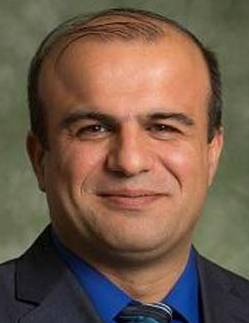Our instructors can deliver your customized course to your location/organization or on the Binghamton University campus (face-to-face workshop style). We can also deliver the course online (self-paced or live virtual with various degrees of instructor support).
If you are interested in a private course for your organization please complete this non-binding interest questionnaire and we will contact you as soon as possible.
If you have any questions contact wtsnindy@binghamton.edu
ABOUT THE COURSE
The principles of Lean Six Sigma are vital to the continuous improvement of hospital operations and healthcare delivery systems. This course will utilize healthcare case studies to teach the many applications of Lean Six Sigma concepts.
"The goal is to make healthcare more efficient, more effective, with higher quality and fewer errors — and, in the process, save lives." - Professor Mohammad Khasawneh
COURSE DESCRIPTION
This course will cover continuous process improvement in healthcare, an introduction to Lean, Six Sigma, Lean Six Sigma in healthcare and the DMAIC improvement cycle (Define, Measure, Analyze, Improve and Control) which is a core tool to drive Lean Six Sigma projects. Participants will also be exposed to spreadsheet-based statistics for Six Sigma, simulation for Lean Six Sigma and case studies/projects.
Instructor: Mohammad Khasawneh
Course content: 33 hours of video lectures materials and slides. Open-book, open-note exam. The content will be adjusted to the delivery method (online or face to face)
Credentials: A Green Belt Healthcare badge will be issued after successful course completion in addition to a certificate of continuing education credits for a total of 3.3 CEUs from the Thomas J. Watson College of Engineering and Applied Science at Binghamton University.
Who Should Attend: Healthcare executives, directors, physicians, nurses, pharmaceutical staff, hospital and office administrative staff, industrial management engineers, performance improvement specialists, laboratory and specialized healthcare services staff, clinical staff, insurance company staff, others seeking Lean Six Sigma Green Belt certification
TOPICS COVERED
- Continuous process improvement (CPI) in healthcare with emphasis on both Lean and Six Sigma concepts and methodologies
- Lean concepts and its applications in healthcare, such as 5s, waste reduction, value stream mapping and error proofing
- DMAIC (define, measure, analyze, improve and control) to solve healthcare issues and
transition CPI projects from one phase to another
Define: Project charter; process mapping; voice of the customer; 7 "new" management and planning tools; 7 "old" quality control tools; CTQ trees; SIPOC diagram; etc.
Measure: Basic probability and statistics for six sigma; measurement system analysis (MSA); Gauge R&R studies; process capability analysis; benchmarking; etc.
Analyze: Correlation analysis; regression analysis; confidence intervals; hypothesis testing; etc.
Improve: Design of experiments (DOE); analysis of variance (ANOVA); failure mode and effect analysis (FMEA); house of quality and quality function deployment (QFD); simulation software; action/communication plan; etc.
Control: Statistical process control; process capability analysis; cost savings and return on investment (ROI) calculations; mistake-proofing; control plan; etc. - Basic statistical analysis methods and tools to determine key relationships between health system inputs and outputs
- The integration of both Lean and Six Sigma for achieving data-driven process improvement results in healthcare systems
- Team dynamics and leadership in healthcare domain to provide effectively successful healthcare projects
LEARNING OBJECTIVES
- Recognize the need and key attributes of a successful Lean Six Sigma program in an organization
- Describe the roles and responsibilities of a certified Lean Six Sigma Green Belt in a healthcare organization
- List the fundamentals of the DMAIC problem-solving methodology
- Use basic Lean Six Sigma tools for project definition and process baseline, and improvement analysis, implementation, and sustainability
- Define the need for advanced problem solving and improvement methodologies used by project teams
- Integrate Lean Six Sigma knowledge and tools to successfully
- implement, deploy, and sustain process improvements
REQUIREMENTS
- Computer with a high-speed internet connection and audio (if online course)
Microsoft Excel - Trial version (free for 30 days) of the Minitab software (for statistical analysis) on or a day before the start of the training program
- Updated version of JAVA
- A headset with a microphone may be useful but is not necessary
INSTRUCTOR
Mohammad T. Khasawneh

- Professor and Chair of Systems Science & Industrial Engineering Department
- Associate director, Watson Institute for Systems Excellence
- Director, Healthcare Systems Engineering Center
- Director, Human Factors and Ergonomics Laboratory
- Graduate Program Director, Executive Master of Science in Health Systems
- SUNY Chancellor's Award for Excellence in Teaching
- Ph.D., Industrial Engineering, Clemson University
Teaching Assistant
Lu He

- B.M., Logistics Management, 2014, China, Southeast University
- M.S., Industrial and Systems Engineering, 2016, Binghamton University
- Ph.D. Student, Industrial and Systems Engineering, Binghamton University
- Research project assistant, Watson Institute for Systems Excellence
- Graduate assistant, Lean Six Sigma Green Belt